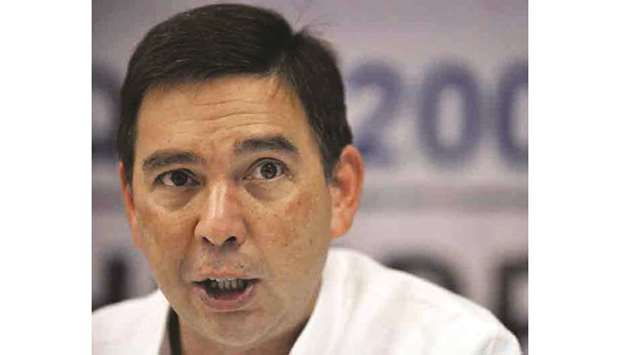Senate President Pro Tempore Ralph Recto has filed a resolution prodding the Senate to investigate a United Nations report that the Philippines has become a hotspot for fake medicines.
The 2019 report of the United Nations Office on Drugs and Crime titled Transnational Organised Crime in Southeast Asia: Evolution, Growth and Impact said the Philippines has the “highest incidence” of fake medicines in Southeast Asia.
The report depicted the Philippines as “a hotspot for knockoff drugs.”
Recto said the report is alarming because it claims that from 2014-2017, fake medicines, mostly from Pakistan, India and China, entered the Philippines through an illicit trade network.
“On top of this is the reported market penetration of locally-manufactured counterfeit over-the-counter medicines,” Recto said. He said government should unmask which of “these misbranded, spurious, fake, and falsely-labelled drugs” have entered the market and duped Filipinos.
“In 2018, no less than President (Rodrigo) Duterte described the availability of counterfeit paracetamol brands in the country as a growing threat and ordered the arrest of their makers and sellers,” Recto said.
He said if reports are true that fake medicines are sold cheap in sari-sari (neighbourhood) stores, “then they are victimising the poor who often have to borrow money to buy medicines or cost-cut by buying doses lower than what the doctor has prescribed.”
Recto said the trade in fake medicines was “a large scale swindle of the cruelest kind, as their victims are of the illusion that they are taking authentic medicines that will cure them “and not something made of flour.”
Recto said the staggering amount of money Filipinos spend yearly for medicines and pharmaceutical preparations should prod the government to protect their health, safety and money.
He noted that about P187bn, or half of the P372.8bn “out-of-pocket” health expenditures of Filipino families in 2017 went to pharmacies.
“Households buy half a billion pesos worth of drugs a day.
This does not include those being bought yearly by private hospitals, government, and insurance companies that are worth billions of pesos,” he said.

Recto: expressing concern
